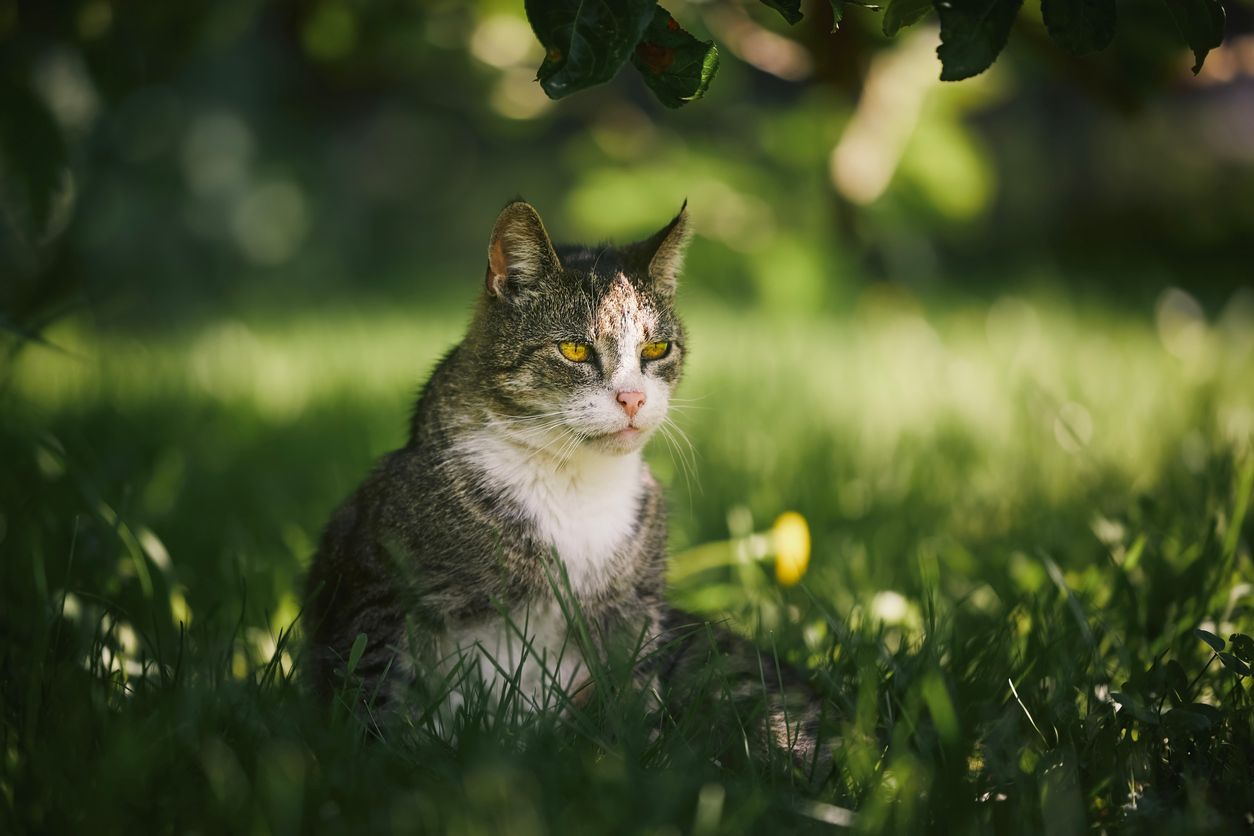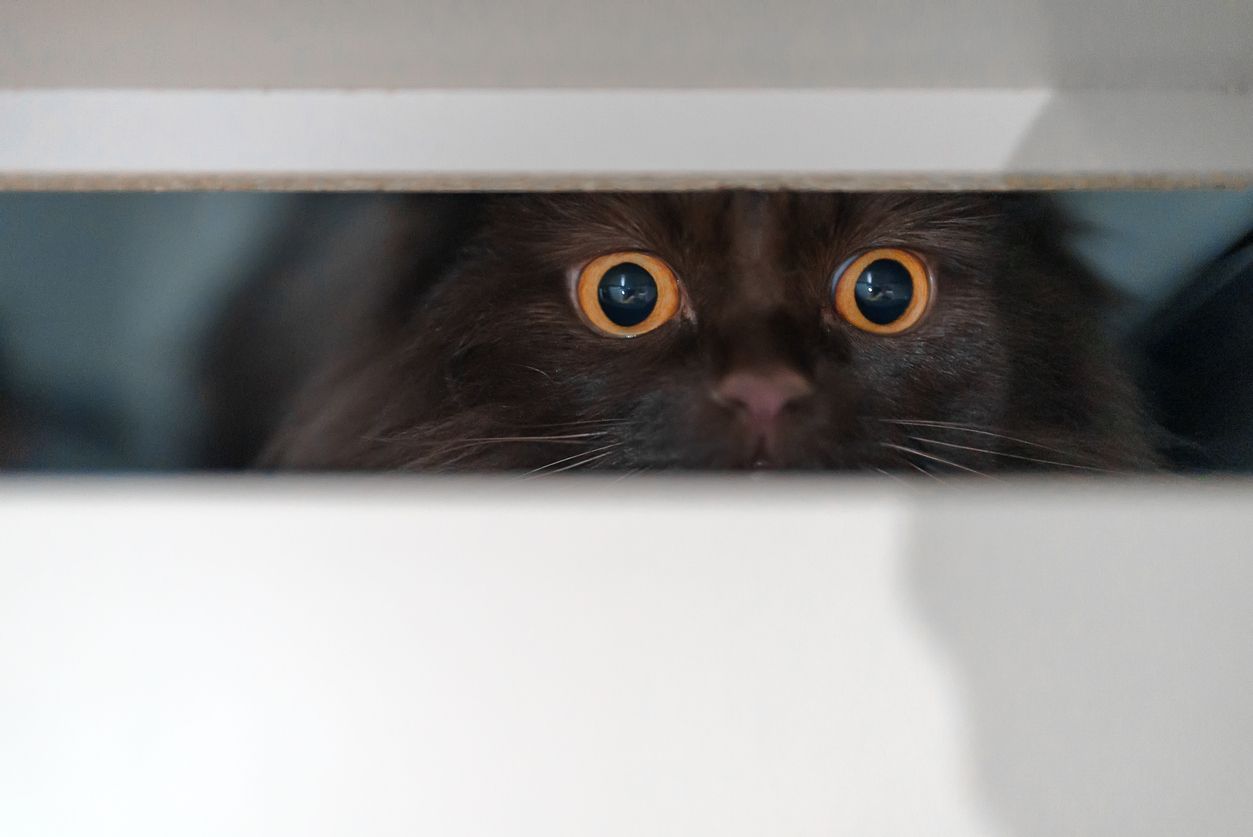How heart murmurs in cats are treated

Disclaimer: This article, its content, and its related references do not constitute veterinary advice and should not be considered a substitute for veterinary care. If your pet is showing any symptoms that could indicate a medical emergency, please seek immediate emergency care.
Heart murmurs are abnormal additional sounds heard when listening to a cat’s heart that occur as a result of turbulent blood flow. Murmurs are common and can be caused by many different heart and health conditions that range in severity. Because there are many potential causes, treatment for cats with murmurs varies. If you have a cat, read on to learn:
- What heart murmurs are and how the condition causing them is diagnosed
- Treatment for causes of feline heart murmurs
- How to help a heart murmur in cats
Some heart murmurs can be benign, while others may be caused by serious health issues, such as hypertrophic cardiomyopathy or dilated cardiomyopathy. Treatment options vary depending on the underlying cause of a cat’s murmur. As the murmur is a result of an underlying condition, treatment is determined based on the condition causing the murmur.
What is a heart murmur?
A heart murmur is an abnormal sound heard when listening to a cat’s heart with a stethoscope. A murmur sounds like a whoosh in between the two distinct heartbeat sounds. Abnormal heart sounds are caused by turbulent blood flow through the heart due to:
- Blood leaking backward through a valve (heart valve issue)
- Blood leaking from part of the heart (hole in the heart)
- Blood squeezing through a narrowed heart chamber or blood vessel (stenosis)
The causes of murmurs in cats range in severity from benign to life-threatening, so it’s important to work with a veterinarian to find an accurate diagnosis and effective treatment plan as soon as the murmur is detected. Types of murmurs include:
- Congenital: The cat was born with a condition that causes the murmur
- Acquired: A condition develops later in life that causes the murmur
- Innocent: A nonpathological (benign) murmur found in young kittens that goes away as they age
- Physiologic: A nonpathological (benign) murmur that can be attributed to noncardiac conditions
Physiologic murmurs can be caused by anemia or appear during times of stress. They usually resolve once the underlying cause has been addressed.
How are feline heart murmurs diagnosed?
A heart murmur can be heard during a physical examination when a veterinarian listens to the cat’s heart with a stethoscope. The vet may be able to hear which part of the heart is affected based on the type and location of the abnormal heart sound. Many murmurs are found during regular veterinary checkups without any other obvious symptoms or signs of illness being present.
The underlying cause of the murmur is most often determined with an ultrasound of the heart or an echocardiogram. Your primary care veterinarian may refer you to a veterinary cardiologist for an echocardiogram and diagnosis. The underlying cause of the murmur must be diagnosed in order to determine a proper course of action, whether it be ongoing monitoring or starting medication.
Additional diagnostic testing may be recommended to diagnose the underlying issue. Diagnostic tests may include:
- Chest X-rays
- Electrocardiograms (EKGs)
- Holter monitors
- Blood tests
- Measuring blood pressure
A Holter monitor is a special vest that’s worn by cats to record cardiac activity over a 24 hour period and is sometimes used to help diagnose the cause of a heart murmur. Bloodwork, chest radiographs, and measuring a cat’s blood pressure can also help point to a diagnosis. Medical treatment options vary depending on the diagnosis.
Treatment options for heart murmurs in cats
Treatment options vary depending on what’s causing the murmur. The murmur itself is not treated. Rather, the underlying condition needs to be addressed. Innocent heart murmurs in kittens do not require treatment and most often go away with age. For other causes of murmurs in cats, treatment may include:
- Cardiac medications
- Special diet
- Surgery to fix congenital heart defects
Some heart conditions that cause murmurs don’t require immediate treatment, depending on what stage the disease is in. A vet may recommend waiting and continuing to monitor the condition instead of immediately starting heart medications or other forms of treatment. Emergency conditions associated with heart murmurs, such as respiratory distress as a result of congestive heart failure or blood clots, require emergency stabilization and hospitalization as part of treatment.
How cats get heart murmurs
Various acquired or congenital heart diseases can cause murmurs in cats. Acquired cardiac diseases are those that develop over time, such as hypertrophic cardiomyopathy. These can be primary diseases or develop secondarily to other health conditions, such as hyperthyroidism. Congenital murmurs develop due to heart defects the cat is born with. These defects cause structural problems within the heart, such as a ventricular septal defect or pulmonic stenosis. Though rare, cats can also develop a murmur in association with heartworm disease.
Feline heart murmurs can also be idiopathic, meaning there’s no identifiable cause for the murmur. Young kittens can have benign, innocent murmurs, which they will often outgrow. Health issues that cause murmurs in cats range in severity.
What you can do for a cat with a heart murmur
“If your cat has been diagnosed with a heart murmur, talk to your vet about important next steps for either monitoring the murmur and watching for symptoms, or recommended diagnostic testing,” suggests Dr. Jamie Lecky, a veterinarian on Vetster. Once a diagnosis is made, your vet will suggest the most appropriate treatment plan for your cat’s underlying health issue. An online vet is a great resource to help you learn more about murmurs, what symptoms to watch for, and what next steps you should take to help your cat.
FAQ - How heart murmurs in cats are treated
How do you treat a cat with a heart murmur?
A heart murmur is a symptom of an underlying concern involving the heart. In order to effectively treat the condition, its underlying cause needs to be accurately diagnosed by a veterinarian. Treatment for common conditions that cause murmurs include heart medications, specialized diets, and heart surgery. Not all conditions that cause murmurs in cats need to be treated.
How long can cats live with a heart murmur?
Underlying causes of heart murmurs in cats vary in severity from benign to life-threatening. Cats with benign murmurs don’t require treatment and may grow out of the murmur as they get older. Other conditions, such as congestive heart failure, are more severe and have poor prognoses. Talk to a veterinarian to get an accurate diagnosis and learn more about what’s causing your cat’s heart murmur.
How can I help my cat with heart disease?
There are different types of heart disease that can affect cats. To know how to best care for your cat, talk to a veterinarian about your cat’s specific condition. A vet may recommend monitoring your cat’s breathing rate at home, switching to a special diet, getting testing done regularly to monitor the heart condition, surgery, medication, or other treatment options.



